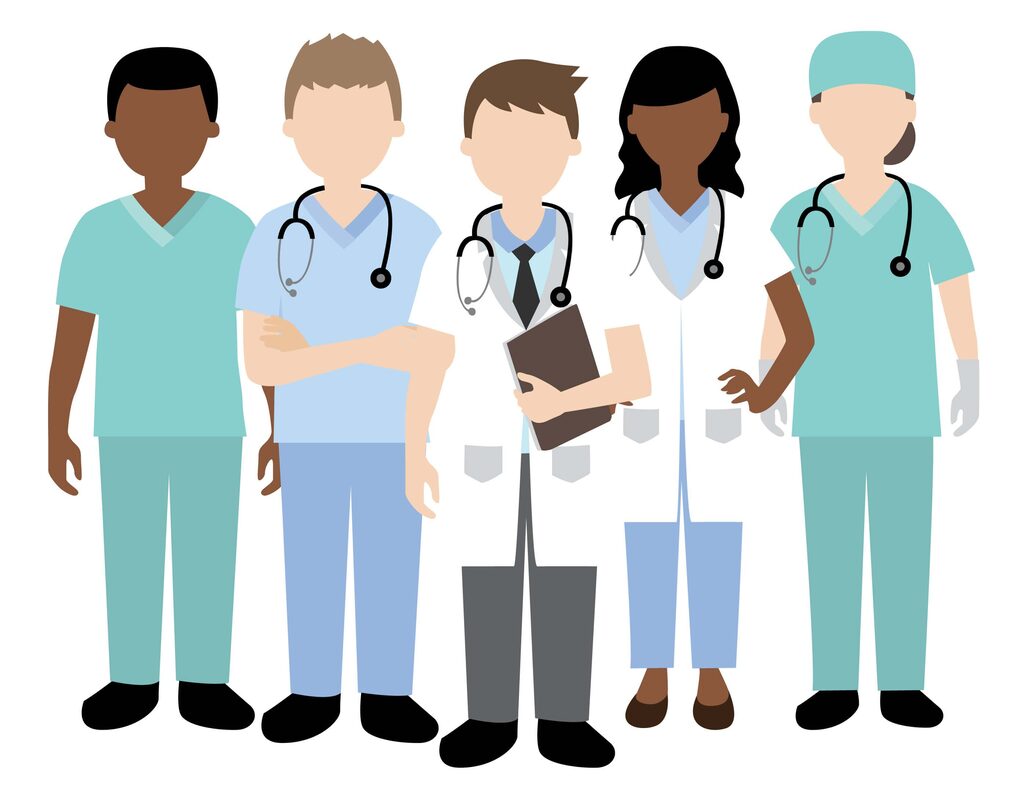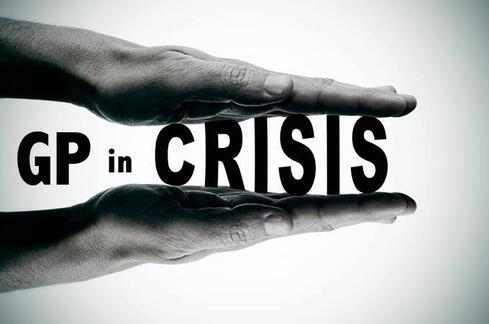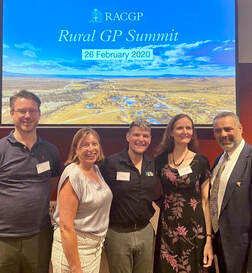|
Dr Ayman Shenouda Despite having had the best policy intentions, we still have too many specialists, and too few general practitioners. The policy response has led to an unprecedented supply of junior doctors feeding a training crisis that will take many years to resolve. Here I’d like to share some ideas around how we can deliver a training model that prioritises need. Making general practice more attractive Ensuing graduates meet the needs of the community requires a new training model and approach. It’s time for a rethink. If we are going to address general practice recruitment, we first need to deal with our image problem. We need to stop general practice from being a second choice. To do this we need to work through the problems in recruitment and this means doing thing very differently. In making general practice a specialty of choice – we need to impart an early positive image which can then be backed by positive experience. Key to making this work is having more control as a specialty in ensuring exposure during those prevocational years. Lost in the prevocational space In increasing its attractiveness as a career choice for junior doctors we need to increase the status of generalism at all stages of medical education and training. It’s clear we are losing them in the prevocational space. It comes down to sufficiency of exposure to general practice and the need for specialty control at that point. In getting them this exposure – which is currently intermittent – postgraduate medical curriculums need more focus on general practice and rural health. While there are now new programs to direct our efforts – the Hubs, RJDTIF and more recently through MDRAP - it is the uncoordinated decision making that will continue to limited our success. The prevocational years remain problematic due to differing state arrangements dominated by hospital need and an underlying lack of ownership. The only consistency through the layers of complexity is the trainee. The funding needs to follow the trainee but we need to build in incentives to retain them on a specific pathway. A collaborative approach led by the colleges of general practice and all organizations involved in those programs is urgently needed There is also a need to formalise a supportive structure through funding the relationship between the trainee and the GP Colleges. This would support a key shift in establishing the relationship earlier, focusing on early identification and continuous support. It provides for the much-needed connection to general practice throughout prevocational and into vocational general practice training. Remuneration is also important GPs are overworked, undervalued and underpaid. We know that expected future earnings influence specialty choice with many choosing general practice following rejection of another specialty. In attracting more to general practice, we need to be able to compete with the higher earing specialties. The way we are paying registrars also needs to be reviewed. GP job satisfaction is also falling which further impacts on GP recruitment and retention.[i] The solution lies in the need to reform the funding model to prioritise primary care and generalism. Funding for general practice The current system devalues primary care. The government needs to be thinking seriously about funding for general practice. Income growth is impacted by decisions around incentives, the prolonged impact of stagnant Medicare reimbursement rates and a continued narrow focus on bulk billing. Significant new investment is required to enable longer consultations particularly in addressing chronic disease and factoring the real costs of delivering this care. Flexible supportive pathway The delivery of quality training through a flexible supportive pathway design needs continuity of funding. We need a long-term commitment that can continue to channel doctors into rural areas. We also need to change this perception that going rural means you have to stay rural forever. Enabling real flexibility of choice comes from building general practice training capacity in rural and remote areas to support the development of high-quality training. Prevocational and postgraduate medical training also has to be aligned with the needs of the health care system. This means the incentives have to be aligned towards general practice and this needs to be led by the GP Colleges. [i] Scott A. 2017. ANZ – Melbourne Institute Health Sector Report. General practice trends. Melbourne Institute of Applied Economic and Social Research, The University of Melbourne.
3 Comments
WELL, DONE GENRAL PRACTICE Legendary work as usual we should feel so proud of our achievements, we managed to save our Nation yet again Bush fires Floods then COVID-19 I Hope politicians will recognize the huge role we play in our health system and heavily invest in support of general practice to continue addressing the long-term effects of those disasters Firstly, A huge thank you for My practice team how have managed to deliver 23000 Jabs in arms and counting despite all the challenges we managed to pulled it off. Fantastic team of GPS practice nurses’ medical student’s receptionist managed to work together and address a huge task in a very challenging environment All focused on one thing, a mission to keep our communities safe. AstraZeneca VS Pfizer battle field, for ever changing eligibility criteria, timing of the second jab, endless phone calls, abusive behaviors, booking management, patients with no Medicare or IHI number, vaccine preparation and waste reduction, cold chain, anti Vax, managing confusion, uncertainty and hesitancy, managing complications and side effects plus ongoing care for chronic disease mental health etc. the list goes on. Secoundley, I would like toremind every on with my previous Blog General Practice in Australia at Crisis point General practice is the foundation of Australia’s healthcare system. Our profession is vital to the health of our nation, yet it remains the most devalued profession. We are underpaid, underprioritised and overstretched by rising demand. This is despite the strong trust patients place in their GP’s - being the most accessed healthcare service with more than two million appointments made every week. Here I discuss some key areas in tackling the funding crisis in general practice. Ayman Shenouda Dr Ayman Shenouda General practice is the foundation of Australia’s healthcare system. Our profession is vital to the health of our nation, yet it remains the most devalued profession. We are underpaid, underprioritised and overstretched by rising demand. This is despite the strong trust patients place in their GP’s - being the most accessed healthcare service with more than two million appointments made every week. Here I discuss some key areas in tackling the funding crisis in general practice. General practice in crisis General practice in Australia is now at crisis point. Many general practices remain on the edge of viability specially in the current pandemic . Practice closures are on the increase as GPs are simply struggling to maintain quality services. There are more and more timebomb towns emerging where GP to patient ratios stretch to breaking point. Despite the rhetoric, bulk billing rates have dropped by -0.1% to -0.5% throughout rural Australia, while out-of-pocket cost has risen by over a dollar to $38.05. These are all factors deterring our doctors in training from pursuing a career in general practice. This all leads to a worsening workforce crisis, particularly in rural Australia. Rural registrar placements have already declined by 40% in some areas and unless we start making careers in general practice attractive, including remuneration in line with hospital specialities, there will be serious consequences. And with a declining general practice workforce, the true cost will be seen in future years in the declining health of the nation. Urgent trust and investment in general practice is now needed. The shift needed Our healthcare system is already the envy of many countries around the world. But how healthy is it when less than 9% of annual funding goes to general practice? The hospital system and other tertiary services continue to be prioritised. Despite the evidence, policy makers seem intent on preserving a reactive and acute care focused system. Yet we know the impact of chronic disease will only intensify and this requires a strong preventive focus. Australia faces a rising chronic disease burden, an ageing population and a significant rise in mental health problems and palliative care need. According to the latest National Health Survey almost half of all Australians (47.3%) are now living with a chronic disease. We know that a third of chronic disease is preventable yet there is an allocated health spend of only 1.3% of our health total budget. We know that without strong and effective primary health care countries will struggle to maintain their health services. It is by far the most efficient and cost-effective part of the healthcare system yet it remains so grossly underfunded. There is clear global evidence that health systems with strong primary care will secure long term efficiencies. Benefits from prioritised investment include achieving lower rates of hospitalisation, fewer health inequities and better health outcomes including lower mortality. A solid foundation Chronic disease is complex and difficult to manage. The only way to curb the impacts of the rise in chronic diseases is through prevention. We have the key components already in place to underpin strong population health outcomes. The unsustainable rise in healthcare funding needs structures towards prevention and management and we already have a solid foundation to work from. General practice provides the foundation for what can be the best and most effective, high-quality and sustainable health system. An equitable system that supports optimal outcomes which see patients actively managing their healthcare needs to stay as healthy as possible. Missed opportunity The Government is clearly not capitalising on this opportunity. Why do we find it so hard to direct funding to where it is most needed? Despite having had the best policy intentions the funding committed towards primary care unfortunately has not been spent in the right places. Lots of investment in different organisations has had a destabilising effect – contestable funding and competitive service markets are just not commensurate with addressing significant unmet health need. This approach is having a negative impact on the delivery of vital health services. It stifles innovation making it very difficult to be creative to deliver quality care for patients. Direct investment in the most effective part of our health system – general practice - in driving patient centred outcomes is what’s needed. United leadership In my journey in general practice I have met a lot of amazing GPs. My colleagues continually inspire me with their passion and tenacity to overcome these challenges and their enduring commitment to serving their communities. The reality is that the majority of GPs are doing exactly that. Governments are using this passion and commitment to their advantage. A lack of appropriate government investment in general practice has put our health system at risk. General practice services in Australia are close to breaking point. A strong investment in general practice is what is needed to secure a healthier future for all Australians. The health of our nation is an enormous responsibility and more funding is needed so that we can continue to provide optimal care. Strong united leadership with a united approach to this major crisis is now urgently needed. Urgent need for investment There is an urgent need for financial incentives, to reward GPs for increased scope, complexity, special interest, continuity of care, and patient coordination. We cannot ask GPs to perform an advanced-level job, but remunerate them with the lowest rates of all medical specialties. This has to change. Unsettling times in our communities and across the world
It is an unsettling time. We know young people, their parents and teachers have been preoccupied with school closures for several weeks. We are aware that families in our community are facing new challenges, juggling the responsibilities of caring for family members – young and old. Thousands of people are adjusting to new working arrangements, while others, in casual employment or small business are fearful about future incomes. And then there are the health professionals. The GPs and their teams. The medical and nursing professionals working at hospitals. The Nurses working in aged care. The Aboriginal Health Workers reaching out to support communities. These professionals have been working for weeks to respond to, and prepare for, the spread of COVID 19. We knew COVID 19 was coming and its impact was to going to be significant. Australia’s leading medical professionals and GPs having been working around the clock to prepare Australia, the health system and GP practices. Thankfully, our politicians have been listening to the medical experts and responding to their advice. But more needs to be done. As at 3:00pm on 25 March 2020, there have been 2,423 confirmed cases of COVID-19 in Australia. This figure is rising I am still hopeful it will flatten in response to the recent restrictions . GPs are on the frontline. Every day, we see patients who need testing or who are displaying symptoms that are causing them to be concerned. As GPs we balance keeping our staff and ourselves safe, whilst also attempting to achieve continuity of care. There is a long road ahead for each of us and our communities. Our patients look to us as the calm providers of advice. They seek out our guidance and look to us to reassure them. We have the skills and expertise to be at the frontline of the campaign to keep all of us healthy and safe. However, to do this role well, we need open lines of communication with decision makers, access to evidence, timely testing and plenty of PPE. Australia has more than 26,000 specialist GPs[i]. We are working in communities all across Australia. We want to help our patients and their families through this time. To do this we are going to need our support networks, our leaders and our resilience. I am confident that Australia’s GPs are up to the challenge. Our communities are depending on it. [i] Medical Board of Australia. Registrant Data – December 2019. Accessed 22 March 2020 https://www.medicalboard.gov.au/News/Statistics.aspx A collaborative approach is what we need for rural GP training
I recently had the opportunity to host a Rural GP Summit in Alice Springs. The summit brought together the key people and organisations that contribute towards ensuring there is quality general practice in rural Australia. At the summit, we analysed what is working well to support GPs to train in rural Australia. We also acknowledged the need for improvements. Including harnessing innovative contemporary learning models, which are flexible, and offer new opportunities. For more details about the announcements the RACGP made at the Rural GP Summit and the opportunities this will create for registrars, see link here. For me, the greatest outcome from the Rural GP Summit was seeing the willingness of delegates to come together to talk about, and debate, the future of rural general practice education and training. There was such generosity in the sharing of ideas and solutions. There was also courage to discuss what is not working well. We all know about the challenges associated with supporting general practitioners to train and work in rural Australia. We know about the struggles to enlist experienced supervisors, and the barriers that prevent registrars from feeling confident to undertake their training in a rural community. We have lived through the historical division between GP organisations and have witnessed the arm wrestling that occurs between Commonwealth and State Government agencies. All of which creates confusion and duplication and further prevents GPs from addressing community need. However, we also know that working in rural Australia, as a GP, is one of the best jobs there is. Where else do you get to use all of your training (sometimes before lunchtime) to provide continuity of care for your community. Rural general practice is about teamwork. Working in teams to address community need in a rural community, is immensely satisfying. Listening to the discussion and ideas at the Rural GP Summit has given me hope. It has confirmed to me that we need to build collaboration into the design and delivery of future rural general practice training. We need to ensure junior doctors and registrars are at the table when the education and training frameworks are created. We need to invite medical educators and supervisors to be part of the discussion about how we deliver general practice training in rural Australia. We need to regularly invite feedback from our partner agencies and rural stakeholders. We also need to work with our stakeholders to monitor trends and to mobilise our collective energies and resources, when there are obstacles that are hindering high quality general practice training in rural Australia. If we can work in collaboration, I am confident we can reform our current approaches to rural general practice training. I am hopeful we can create new flexible models that reflect the aspirations and expectations of our current and future registrars. If we can harness the energy and insights of our registrars, educators and rural stakeholders we can achieve great things. Our rural communities will be the big winners if we can get this right. Ayman Shenouda |
Author
Dr Ayman Shenouda Blogs categories
All
|






